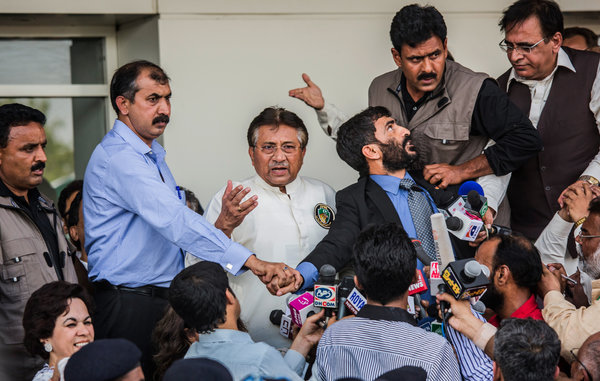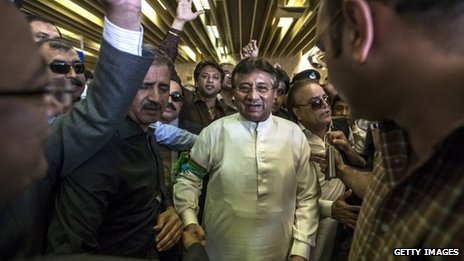Gunny
Gold Member
By SALMAN MASOOD and DAVID ROHDE
Published: December 11, 2007
ISLAMABAD, Pakistan, Dec. 10 Nearly all private television channels blacked out last month by President Pervez Musharrafs emergency decree are back on the air. But the countrys once-thriving television news media remain largely muzzled by sweeping new restrictions that journalists and Western diplomats say stifle criticism of the government.
After the blackout cost leading channels tens of millions of dollars in lost advertising revenues, owners of all but one channel agreed to stop broadcasting the countrys highest-rated political talk shows and signed the government-ordered code of conduct.
And under a new ordinance, unilaterally enacted by Mr. Musharraf, television journalists face up to three years in jail for broadcasting anything which defames or brings into ridicule the head of state and other restrictions. The law will remain in place after Mr. Musharraf ends the state of emergency, which he has promised to do on Saturday.
Hes getting away with it, really, because the Western support is there again, said Talat Hussain, a popular talk show host whose program is no longer aired on two stations, Aaj and Today. There isnt enough pressure.
more ... http://www.nytimes.com/2007/12/11/w...32a7d79a7519d9&ei=5088&partner=rssnyt&emc=rss
Our "ally" in the War on Terror ...







